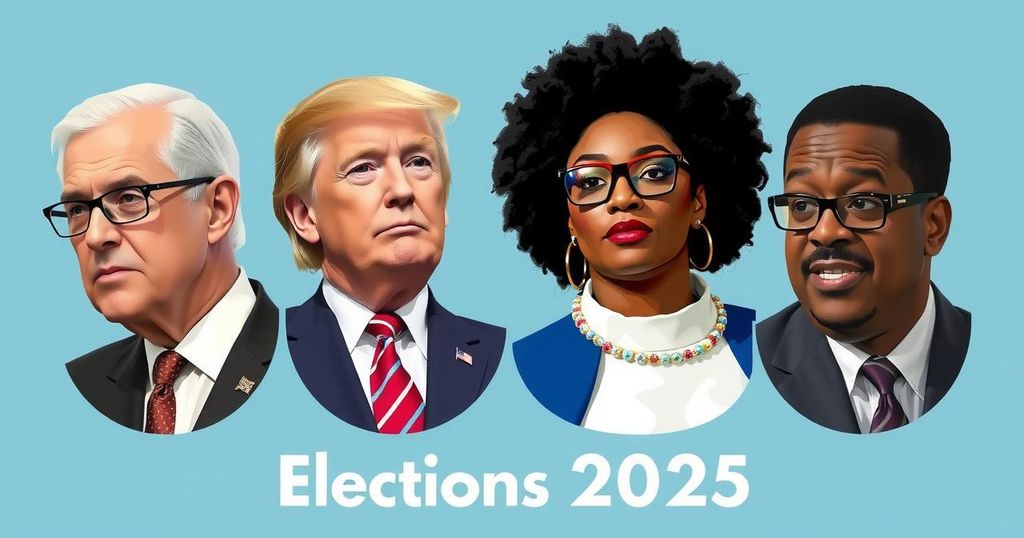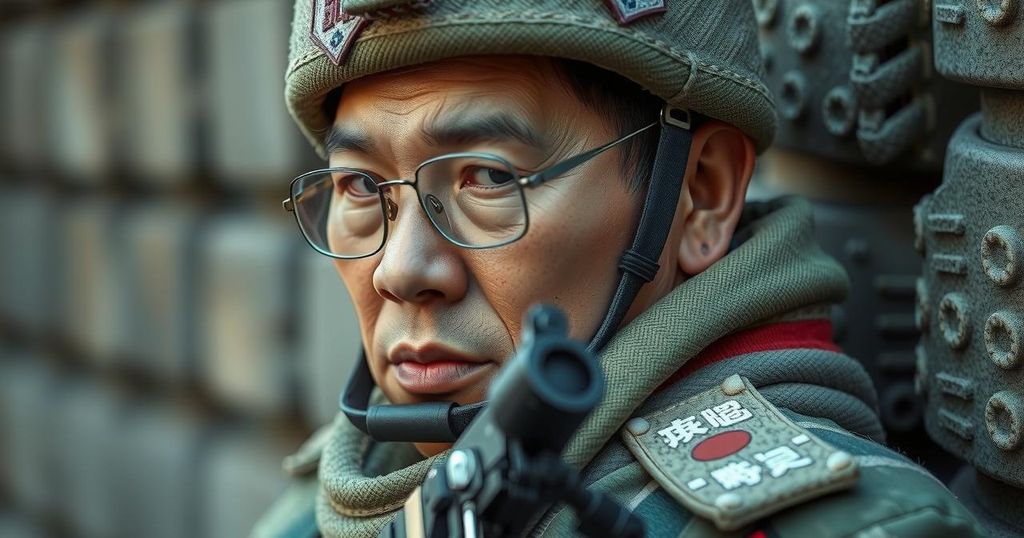World news
ALEH HAIDUKEVICH, ASIA, BELARUS, CANADA, ELECTION, ELECTIONS, EUROPE, HANNA KANAPATSKAYA, LIBERAL DEMOCRATIC PARTY, LITHUANIA, NORTH AMERICA, OPPOSITION, PHILIPPINES, POLITICS, PRESIDENTIAL ELECTION, PRESIDENTIAL ELECTIONS, REPUBLICAN PARTY OF LABOR AND JUSTICE, SCHOOL OF INTERDISCIPLINARY GLOBAL STUDIES, SIARHEI SYRANKOU, TA, TATSIANA KULAKEVICH, UNIVERSITY OF SOUTH, UNIVERSITY OF SOUTH FLORIDA
Ethan Kumar
0 Comments
Key Elections to Observe in 2025 and Their Implications
Five critical elections to watch in 2025 will unfold in Belarus, Germany, the Philippines, Canada, and Chile, each reflecting unique political landscapes marked by issues like authoritarianism, economic turmoil, and internal conflicts. The stakes of these elections hinge on leadership stability, democratic processes, coalition dynamics, and ideological shifts, signaling significant consequences for both domestic and international politics.
In the upcoming year, multiple nations will engage in significant elections, albeit fewer than in 2024. Key issues such as inflation, the rise of populism, and geopolitical conflicts will shape these electoral processes. This analysis examines five pivotal elections in 2025 across Belarus, Germany, the Philippines, Canada, and Chile, highlighting the stakes involved in each voting event.
Belarus (January 26): Alexander Lukashenko, the longest-serving authoritarian leader in Europe, will seek his seventh term with no real opposition challenging him. Experts highlight that the environment in Belarus is repressive, inhibiting fair elections. Following the protests against his previous term, Lukashenko’s administration has enacted strict measures to quell dissent. Should he win, it is anticipated that Belarus will maintain its strategic alliance with Russia amid ongoing tensions in Ukraine.
Germany (February 23): Due to a coalition government collapse, Germany will conduct an early federal election. The ongoing war in Ukraine and domestic economic challenges, including recession and migration issues, dominate the political landscape. Chancellor Olaf Scholz’s Social Democrats are lagging in popularity, facing severe competition from the Christian Democratic Union. Observers predict Friedrich Merz, the CDU leader, may emerge as the next chancellor, although forming a stable coalition may prove complex.
Philippines (May 12): In the Philippines, the midterm elections will function as a crucial referendum on President Ferdinand Marcos Jr. His support among senatorial candidates is strong, indicating the potential for consolidating power. However, tension within the political landscape, especially concerning Vice President Sara Duterte, poses challenges. A unified Senate aligned with Marcos could either enable or inhibit an impeachment trial against Duterte, underscoring the stakes of these elections.
Canada (Before October 20): With Prime Minister Justin Trudeau’s governance at risk due to low approval ratings and internal strife, a federal election may precede the established timeline. Economic concerns, heightened by U.S. pressure and inflation, amplify the stakes. Conservative leader Pierre Poilievre is gaining momentum, challenging Trudeau’s progressive policies. This electoral contest may determine the ideological trajectory of Canada, shifting towards either conservativism or continued liberal agenda.
Chile (November 16): The upcoming presidential election in Chile is set against a backdrop of political turmoil experienced under Gabriel Boric’s administration. With Boric unable to run for a second term, the opposition, particularly the right-wing coalition, appears poised to make gains. The political landscape is fragmented, and while the ruling coalition performed unexpectedly well in local elections, the outcome remains uncertain. The election will likely reflect Chile’s struggle for political and constitutional stability after years of upheaval.
In 2025, several crucial elections will occur in various countries, revealing major political dynamics and public sentiments. The state of each nation, including economic pressures and societal issues, plays a significant role in shaping these elections. Factors such as authoritarian regimes, economic distress, internal coalitional strife, and shifting political allegiances will create a complex electoral environment worldwide. Understanding each country’s specific context offers insight into potential outcomes and the implications of these elections for both domestic and international relations.
The forthcoming elections in 2025 are set against a backdrop of critical issues that could significantly affect the political landscape in each respective country. In Belarus, continued authoritarianism poses a threat to democracy; in Germany, economic dilemmas challenge leadership stability; in the Philippines, internal political conflicts will determine the future governance dynamics; in Canada, ideological shifts may redefine national policies; and in Chile, the pursuit of constitutional reform reflects a society still grappling with its political identity. Consequently, observers must scrutinize these electoral events as key indicators of evolving political narratives globally.
Original Source: theconversation.com




Post Comment